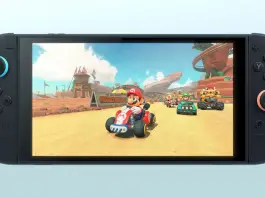Stay Informed
Get Industry News In Your Inbox…
Sign Up Today
Pocket Gamer Connects, the leading international conference series for the global games industry is coming back to London on January 20th and 21st, 2025.
This must-attend event will unite more than 2,750 industry professionals for two days of learning, pitching and networking. Attendees will dive into 20 expertly curated conference tracks exploring the latest mobile, PC, console, web3, AI, and other key trends and technologies.
Joining the world-class lineup of speakers is Archie Stonehill, the head of product with direct-to-consumer specialist Stash.
The PocketGamer.biz team sat down with Stonehill to find out more about his thoughts on the future of mobile games – and what the PC market can teach us.
PocketGamer.biz: Tell us about yourself and what you do at Stash.
Archie Stonehill: I am the head of product at Stash, collaborating with top game studios to build a first of its kind direct-to-consumer platform for games.
Previously, I was engagement manager and senior expert advisor in games at McKinsey, and following that, was a principal at Makers Fund, working closely with founders and investing in the next big studios.
As a hardcore gamer, I am deeply passionate about the impact D2C will have on player experiences and industry innovation.
What will you be talking about at PGC London?
D2C and web shops exploded in 2024. Now, a year later, many studios already understand its potential benefits and have begun building them, or are strongly considering adding them into their 2025 roadmap.
So far, a lot of these web shops are functional (they sell things) but now they need to become more experiential. Like any monetisation strategy, D2C needs to be implemented and optimised with care – and there is no one-size-fits-all approach to success.
With so many web shops launched in the last two years, we now have enough data to look at what is working and what isn’t working to make these channels a better e-commerce experience for a broader group of players.
I’ll be talking about the player journey and using analytics to optimise the web shop funnel so studios can meet, if not exceed, their KPIs.
Where are the next big opportunities in the mobile games market?
The next big opportunity in mobile is out-of-game engagement which enhances the gameplay experience. Developers need to think holistically about their players’ experiences – and that extends beyond their product and into their distribution channels.
A good example is the expansion of loyalty across genres. Historically, it’s largely been casino developers who have implemented loyalty programs and VIP player experiences – but with the rise of direct-to-consumer and web shops, we can expect more and more genres to do the same in 2025.
These programs not only give your most committed players more ways to enjoy and interact with your game, they also significantly boost your bottom line. Web shops give developers a clear reason to invest in player loyalty: avoiding Apple and Google’ 30 percent fees.
Highly committed players are always looking for more content, offers, gifts – and loyalty programs, VIP experiences, and premium benefits are excellent ways to give them more value.
What’s the most important key performance indicator (KPI) for you – and why?
The most important KPI for us at Stash is the percentage of total player spend going through our customers’ direct-to-consumer channels vs the app stores.
As you’ll see in my talk at PGC London, it’s THE metric for optimising web shops. Other metrics – like web shop revenue or even web shop conversion metrics – can be misleading because they don’t isolate game performance from web shop performance.
“Developers need to think holistically about their players’ experiences – and that extends beyond their product and into their distribution channels.”
Archie Stonehill
What is the single biggest challenge facing the mobile games industry today?
The biggest challenge today is of course the lack of growth in the industry. Until now, the industry has grown by increasing the number of gamers year over year – but it’s clear that in the last year, we’re sort of tapped out.
There are many factors contributing to the industry-wide contraction, but one which I don’t think gets enough recognition is the diminishing returns on product innovation. There are simply fewer new mechanics and genres bringing in new gamers than there once were, and it’s hurting developers’ ability to grow.
This is partly because many markets are more adequately served now than they were 10 years ago. This is why I believe the industry needs to refocus on distribution innovation – just like how mobile and free-to-play infused growth in the industry by getting games to new players.
Today, it’s hard to find a better strategy than direct-to-consumer as an avenue for growth. What other strategy can immediately boost your bottom line by 30 percent?
The mobile space evolves at a much faster pace than console and PC gaming, but is there a console or PC trend that you think has potential within the mobile space?
In the last few years, there’s been a lot more growth in the PC space than there has on mobile, and I think that’s largely because of the PC’s distribution environment and what it enables.
A great example of this is Early Access. It’s given any size of developer – including indies – the ability to make great, experimental games by testing concepts to get real commercial validation really early on.
Before committing millions of resources, PC games can gauge player interest and then fund themselves off of that interest.
This has echoes of what used to be an edge for mobile when game mechanics could be generated and tested rapidly by hyper and hybrid casual devs. We need to find a way to test bolder concepts on mobile earlier again.
Give us your thoughts on Cross-platform games
Cross-platform gaming has continued to prove itself to be one of the most important trends in our industry. But it’s much easier for new games to go cross-platform than it is for existing ones, mostly for technical reasons.
To be truly cross-platform, you need player progress to be persistent across each environment – however, a lot of mobile teams aren’t set up for this today. Core RPGs, strategy games, and shooters have traditionally been cross-platform, but casual games haven’t followed because of the investment required.
These technical barriers continue to fall, however, and we should watch Google Play Games and examples like Clash of Clans to see how broad PC games can go.



